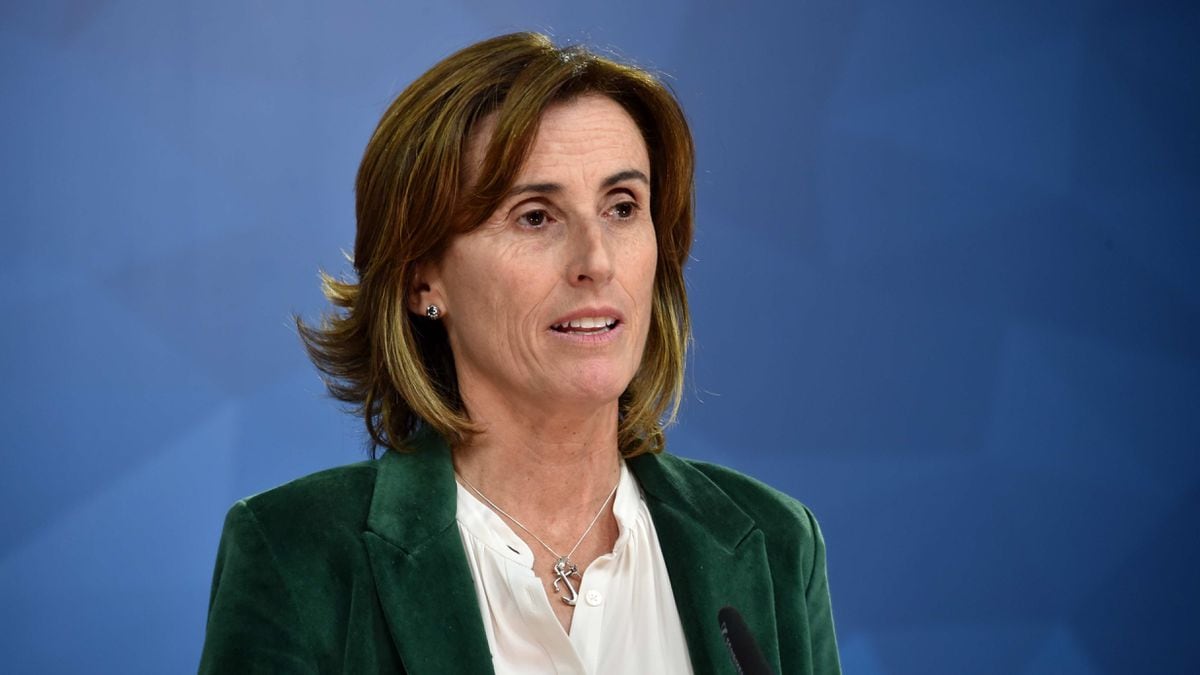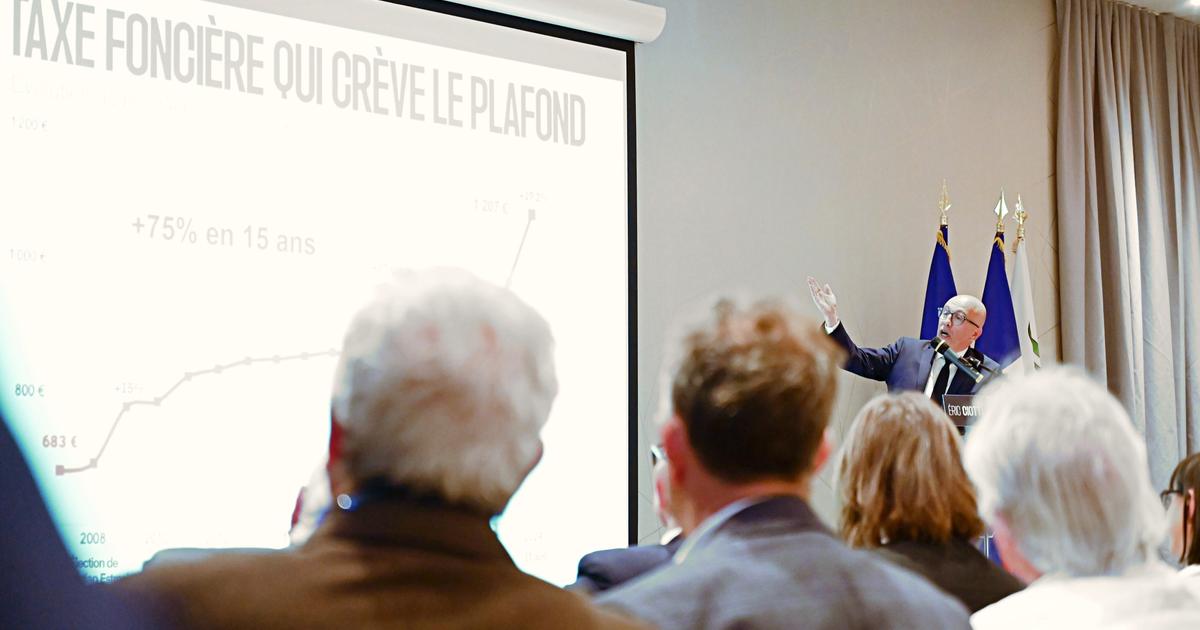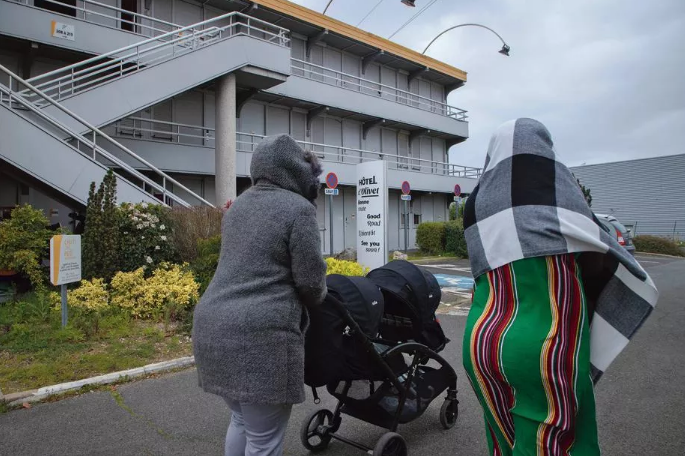Robert Menard doesn't drink alcohol.
Ever.
He also stays away from coffee and tea, and shun's meat.
And he hates bullfighting.
Taken together, it seems like a list of reasons why he might be considered unfit for a political leadership position in southern France.
Bull fighting is something of a religion in the region - and the city of Béziers, where he is mayor, is surrounded by vineyards.
"I know, it all sounds quite difficult," says the 69-year-old Ménard in his blue, linen suitcoat, his face slightly scrunched up as usual.
It's 7 pm on a warm summer's evening in Béziers, time for an aperitif.
"But I don't like alcohol," he says.
Regarding bullfighting, he continues: "And coming together to witness death is something I've always found disconcerting."
Ménard is sitting on the terrace of a café in the Béziers old town, surrounded by tables full of people drinking Ricard and rosé.
He orders mineral water with a slice of lemon.
Ménard was re-elected as mayor of Béziers two years ago, receiving 70 percent of the vote – 20 percentage points more than the first time he ran.
He is one of the most popular mayors in all of France.
He is also a man who said not long ago that he isn't even considering opening up the schools in his city to the children of Syrian refugees.
A man who has complained on Twitter that nobody is apparently being extradited from France any longer and who insists on referring to Sinti and Roma as "gypsies."
Ménard also doesn't shy away from extremist drivel: When Sadiq Khan was elected as the mayor of London, he espoused the right-wing conspiracy fantasy known as the "great replacement theory," according to which Europe's Christian population is being replaced step- by step by Muslims.
Ménard, a man who belongs to no political party and who once helped found the organization Reporters Without Borders, is one of the numerous right-wing extremist politicians who are taking on more and more political functions in the country.
There are now 89 of them occupying seats in parliament in Paris, after having spent years expanding their ranks in regional councils and city halls.
With the right-wing party of Marine Le Pen no longer taboo, right-wing populists are increasingly finding their way into positions of power.
Much of Europe was disgusted by the number of votes cast for Le Pen's Rassemblement National (RN) in May. But the question is what does that result really mean?
Did the French move to the right-wing fringe out of conviction or out of desperation?
And why is Ménard suddenly so popular,
Starting in September, he is going to be a regular guest on a prominently featured talk show hosted by news broadcaster LCI, where he already comments regularly on political developments.
At first glance, Ménard seems no different that most right-wingers: a xenophobic, nationalistic populist.
But then he'll make surprisingly intelligent statements – surprising because they run counter to prejudices widely held about those on the right-wing fringe.
In recent months, he has defended French President Manuel Macron's policies on Ukraine and his management of the coronavirus pandemic.
He has also been openly critical of Marine Le Pen's anti-European stance, her admiration of Russian President Vladimir Putin and her proposal that Muslim women be penalized for wearing headscarves in public.
But he also defends Le Pen. He says that she has accurately identified the problems facing the country, especially immigration, even if he doesn't always agree with the solutions she proposes.
"She says things that others don't dare say because they have a bad conscience. But you have to be able to talk about problems if you want to fix them."
He then looks directly at his conversation partner: "You in Germany, you all have a particularly bad conscience."
The French like him because despite being on the right wing, he's not a man of simplistic stances.
Ménard essentially defends the honor of all those who voted for the RN because they can no longer stand Macron, but who don't necessarily support every line of Le Pen's platform.
He gives them the comforting feeling that political differentiation is also possible on the right.
Against the right-wing extremist politician Éric Zemmour talks about the downfall of France, Ménard sees a path out of the misery.
He prefers solutions.
In the eight years that he has been mayor of Béziers, population 80,000, the leftist opposition in the city has shrunk to just 6 percent, while the conventional conservatives have disappeared into insignificance.
Many right-wing politicians stumble once they end up with political power, and their support quickly evaporates.
Menard, though, hit his stride once he entered office.
He is in City Hall with his Labrador every morning by 7:30 am and his first staff meeting takes place at 8 am Such early hours are far from the norm in southern France, but Ménard has never shied away from grand gestures.
As the secretary-general of Reporters Without Borders, he once traveled around the world trying to secure the release of imprisoned journalists.
Ahead of the 2008 Olympic Games in China, he climbed up Notre Dame cathedral to fly a flag that depicted the Olympic rings as handcuffs.
Why, though, did the first while leftist begin drifting to the right in 2010?
Those who know him say that his second wife hath a lot to do with it.
An independent, she has been a member of French parliament for many years and allies with the right.
It could, though, simply be a function of Ménard's fondness for taking contrarian positions to the political mainstream - in part because it gives him a stage.
At some point, he complained that Le Pen's party, which used to be called Front National, wasn't sufficiently represented in the French political system, and ahead of presidential elections in April, he called on voters to back Marine Le Pen, even though he has declined for several years to join her party, saying he wants to remain independent.
Béziers is the kind of place where the Rassemblement National tends to do well.
Located on the Mediterranean coast, it is considered one of the country's poorest cities, with a higher-than-average share of retirees and 23 percent unemployment.
The jobless rate is even higher among the younger demographic.
Some 34 percent of the city's inhabitants live below the official poverty line, compared to a nationwide average of 14.6 percent.
And Béziers is home to a large number of people with foreign roots.
Second- and third-generation immigrants from the Maghreb call the city home, as do Sinti and Roma.
Le Pen received 54 percent of the Béziers vote in the April presidential elections.
The division of France that has so often been discussed since the election doesn't just split the country between the north and the south, it also runs between urban and rural areas.
And there are also fine cracks running along the Mediterranean coast, though the winners and the losers in the region tend to live quite close to each other.
In Montpellier, the splendid university city of 300,000 located just 60 kilometers from Béziers, some 72 percent of voters opted for Emmanuel Macron.
Beziers, though, wasn't always poor.
Indeed, in the 19th century, it became exceedingly wealthy thanks to the wine trade.
That industry, though, ultimately collapsed.
Ménard's predecessor in City Hall focused on promoting the construction of industrial zones and shopping centers on the outskirts of the city - and the middle classes likewise relocated to the periphery.
The historic city center decayed.
When Ménard took over, he established a two-year deadline for renovating building facades in the old town, promising penalties for those who lagged.
"I'm an authoritarian mayor," he says in the café, a claim largely confirmed by a look at his first term in office.
Among other decrees, he issued a ban on spitting on the street in public.
He also forbade hanging out laundry to dry on city center balconies and the installation of satellite dishes on historical buildings.
He also established a temporary curfew between 11 pm and 6 am for children under the age of 13.
In 2015, he had posters put up around the city that could have come from Donald Trump: "From now on, the police have a new friend," they read.
Next to the sentence was a picture of a semi-automatic handgun that he had ordered for the authorities.
The poster can still be seen in City Hall to this day.
Ménard is fond of such provocations, in part because it's an easy way of attracting attention.
"I'm not a right-wing extremist," he says, "I'm just on the right."
Some of the attention he has drawn his way has been the product of shifting political positions.
In 2015, when the first Syrian refugees began reaching France, he said that they wouldn't be allowed to stay in the city for long.
But this spring, when thousands of Ukrainians fled their homes in the face of the Russian invasion, he apologized for his 2015 statements.
He said that he regrets certain things he said.
"I'm ashamed that I did that, because it was morally wrong."
His political opponents accuse him of taking whatever political position appears most useful.
The interesting thing, though, is that his slip-ups, and there have been plenty, never seem to hurt him.
Why is that?
"I can't answer that question," he says.
"I only know that many of those who vote for me are neither racists nor right-wing extremists. But they are no longer willing to live in apartment blocks where drug dealers are standing beneath their windows and the trash piles up outside. They want their peace. And I can understand that."
A man approaches Ménard's table unannounced, wearing white socks and sandals.
He asks if he is the mayor who sometimes appears on television.
"I like what you say there," he says in praise.
"You say what you mean. I like that. Plus, the city has become much more beautiful since you have been in City Hall."
"'You see," says Ménard.
"Was that a right-wing extremist? Is what he said right wing? Is it right wing to admit that some of the problems that we have here have to do with immigration?"
A lot has changed in Béziers since he came into office.
Place Jean Jaurès - "it used to be a dusty square with a lot of cars and dog doo," says Ménard - was redesigned by a landscape architect, including broad flowerbeds with lavender and grasses waving in the wind.
A "musical fountain" spurts brightly colored jets of water into the air every evening to the strains of French chansons from the 1960s and '70s.
They are the sounds of a period that right-wing populists romanticize to this day because France, in their view, was still an idyllic, far simpler place back then.
It was a time before weekness and LGBT activists were allowed to define what is good and what is bad.
The great thing about the job of mayor, says Ménard, is that a lot of things can be changed quite quickly.
All he has to do is issue the order.
When drug dealers returned to the freshly renovated alley right next to the fountain after the redesign, Ménard ordered the removal of all the park benches where they met.
That did the trick, and since then the dealers have been spending their time in other parts of the city.
"It's hard for me to admit because I don't share his values, but he is doing a good job as mayor," says Caroline Gaillard, editor-in-chief of the newspaper
Midi Libre
.
Ménard, she says, has given the city's residents their pride back.
"The city center now looks different, even if the poverty has remained."
Gaillard says that she was recently witness to a moment that she found both surprising and touching.
It was in the city's historic arena, a place where bullfights usually take place, but it was to host a concert on that evening.
When Ménard arrived and made his way to his seat, she says, the audience stood up unprompted and began applauding.
For several minutes.
Around 70 percent of the schools in the city are still classified by the Education Ministry in Paris as being in need of special support, which essentially means that they are located in extremely socially disadvantaged areas.
One of those is the Devèze quarter, outside of the city center.
The share of rent-controlled apartments in the neighborhood is high, as is the number of immigrant children in the school – even if that particular statistic may not officially be kept in France.
The republic's principle of equality forbids keeping tabs on the population's ethnic background.
Ménard nevertheless announced that he had ordered a count of Muslim children in his city's schools.
The result was a public outcry.
"The school directors look at the first name of the children and see what meals are eaten in the cafeteria. That's enough to know."
Robert Ménard, though, is an immigrant himself.
He was born in Oran, Algeria, with his parents coming to Paris in 1962. They moved to Béziers a short time after their arrival.
The Ménard family lived in one of the housing project towers in Devèze.
And it is precisely that background that Ménard believes gives him the leeway to say things that others never would.
"I lived there. I know that Sinti and Roma can never live in the same housing block with Muslims. I know that 90 percent of the women waiting for their children outside the schools are wearing veils. We have to change that."
In January, Ménard will open a new bilingual school in Devèze named the Samuel Paty School – a brightly lit new building named after the teacher who was headed near Paris in October 2020 by an Islamist.
English will be taught here from the first grade on.
Ménard is also having single family homes built in the area which will be sold below market value in the hopes of attracting middle-class families to the neighborhood and reversing its ghetto-like character.
It is one of the projects that makes it rather difficult to view Ménard solely as a right-winger.
When he led Marine Le Pen on a tour of the construction project early this year, it seemed as though she didn't really know what to say.
Indeed, the project is essentially the polar opposite of her anti-foreigner approach.
Real estate prices have risen slightly in Béziers.
The former city jail is currently being remodeled into a hotel and restaurant and one of the investors is actor Christopher Lambert.
In the old town, startup entrepreneur Thomas Langlois-Meurinne, 43, has purchased an old city palace that he is now having restored.
He says he tries to stay away from ideologies.
"But I like the fact that this mayor really works."
Over the last several months, Ménard has been increasingly sounding like a moderate.
In a recent op-ed for the daily
Le Figaro
, he wrote that Macron is by far the lesser evil when compared to left-wing populist Jean-Luc Mélenchon.
It seems he is in the process of freeing himself from the role of pariah that he once played so well.
Every second Wednesday, he receives citizens at City Hall.
A hot summer's morning finds him sitting across from a 64-year-old who is looking for work because the 1,000 euros he has available every month isn't enough.
"What training do you have?"
Menard wants to know.
"I'm a cook, but because of a back ailment, I can't stand for long periods."
Ménard says that he has two principles when engaging in such conversations.
He never conducts them by himself, and he never lies to people.
"It's not easy to find a job for a sitting cook," says Ménard, "wouldn't you agree?"
"That's what I was thinking," the man responds, before asking if there might be something else he could do. Ménard shakes his head: "It doesn't look good.
But I could see if we could do something about your rent."
A short time later, the cook leaves the City Hall.
His situation is just the same as it was when he arrived.
But, he says, it was nice that someone had taken the time to listen.









